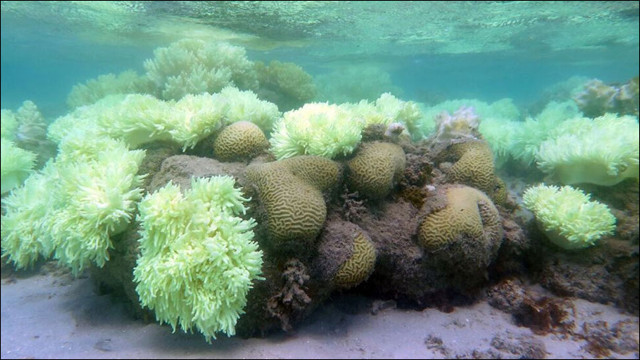Coral reefs are threatened by ocean acidification, which can disintegrate before 2100
In a new study, scientists found that ocean acidification caused by climate change that humans could cause coral to disintegrate before 2100.
Recently, scientists said sediments that form reefs will be threatened by acidification. Coral has been facing risks from rising ocean temperatures, pollution and overfishing.
"Coral reefs will be" net dissolved "before the end of the century," Australia's leading group of scientists wrote in the American journal Science. "Dissolving the net" means more lost coral reefs than the growing coral, the level of coral growth will be severely degraded.

According to experts, carbon dioxide, a man-made greenhouse gas, forms a weak acid in the water and dissolves the sediments of coral reefs, made from broken fragments of coral and destroys birth Other carbonates accumulate in sediments for thousands of years.
Coral sediments are 10 times more easily acidified than small corals.
"This can reflect coral's ability to change the environment and partially adapt to ocean acidification, while releasing sand by disintegrating coral sediments is a geochemical process where corals cannot. adapt, " he wrote in an e-mail.
Some coral reef sediments have begun to disintegrate, such as in Kaneohe Bay in Hawaii, where other contaminants contribute to this situation. Eyre said it is unclear whether disintegration of coral sediments could be a long-term threat to the entire island, from the Pacific to the Caribbean. Other studies say cutting greenhouse gas emissions can limit ocean acidification.
Most studies show that acidification will cause extremely bad conditions for ocean life, as well as threatening organisms such as oysters, lobsters and crabs.
Kasper Hancke, a biologist at the Norwegian Water Research Institute, wrote: "Increasing the amount of carbon dioxide in the ocean can stimulate the growth of harmful kelp and seaweed."
See more:
- Concrete bubbles promise to help restore coral reefs faster
- Coral reefs are severely bleached without the impact of El Nino
- Plastic containers are the latest threat to coral reefs